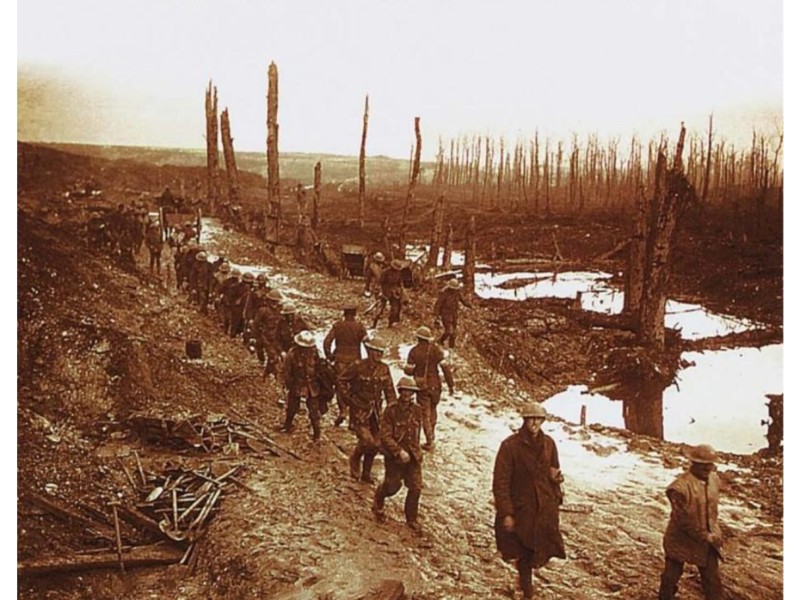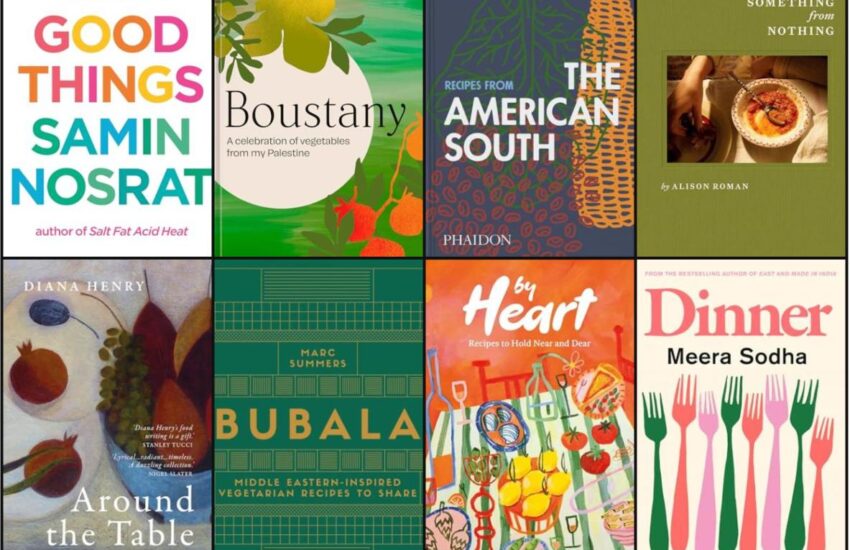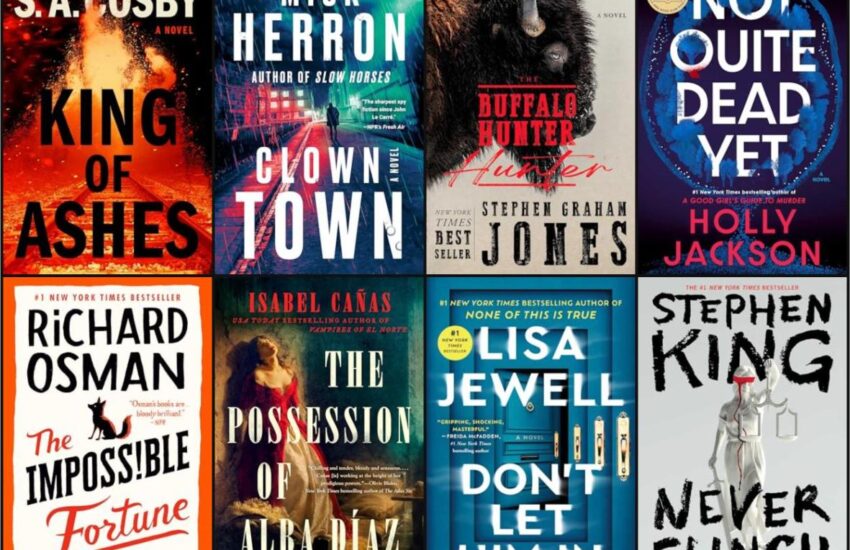The Best Books About World War 1
“What are the best books about The First World War?” We looked at 166 of the top WW1 books, aggregating and ranking them so we could answer that very question!
The top 22 titles, all appearing on 3 or more “Best WW1” book lists, are ranked below by how many lists they appear on. The remaining 125+ titles, as well as the lists we used are in alphabetical order at the bottom of the page.
Happy Scrolling!
Top 22 World War One Books
22 .) A Storm in Flanders: The Ypres Salient, 1914-1918: Tragedy and Triumph on the Western Front written by Winston Groom
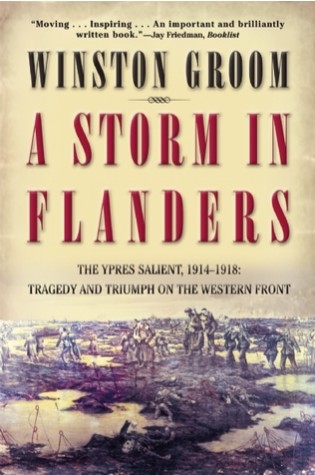
Lists It Appears On:
- About Great Books
- Goodreads
- Military
A Storm in Flanders is novelist and prizewinning historian Winston Groom’s gripping history of the four-year battle for Ypres in Belgian Flanders, the pivotal engagement of World War I that would forever change the way the world fought — and thought about — war. In 1914, Germany launched an invasion of France through neutral Belgium — and brought the wrath of the world upon itself. Ypres became a place of horror, heroism, and terrifying new tactics and technologies: poison gas, tanks, mines, air strikes, and the unspeakable misery of trench warfare. Drawing on the journals of the men and women who were there, Winston Groom has penned a breathtaking drama of politics, strategy, and the human heart.
21 .) A World Undone: The Story of the Great War, 1914 to 1918 written by G.J. Meyer
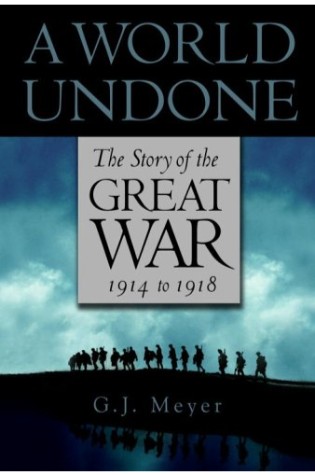
Lists It Appears On:
- About Great Books
- Barnes And Noble
- Goodreads
The First World War is one of history’s greatest tragedies. In this remarkable and intimate account, author G. J. Meyer draws on exhaustive research to bring to life the story of how the Great War reduced Europe’s mightiest empires to rubble, killed twenty million people, and cracked the foundations of the world we live in today.
20 .) Catastrophe 1914: Europe Goes to War written by Max Hastings
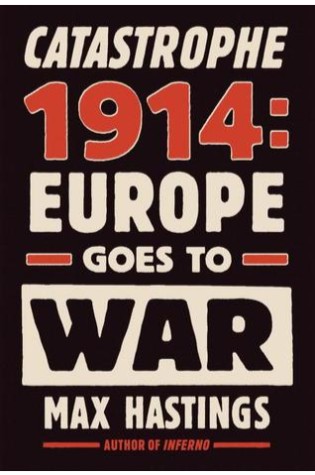
Lists It Appears On:
- About Great Books
- Book Depository
- Goodreads
From the acclaimed military historian, a new history of the outbreak of World War I: the dramatic stretch from the breakdown of diplomacy to the battles – the Marne, Ypres, Tannenberg – that marked the frenzied first year before the war bogged down in the trenches. In Catastrophe 1914, Max Hastings gives us a conflict different from the familiar one of barbed wire, mud and futility. He traces the path to war, making clear why Germany and Austria-Hungary were primarily to blame, and describes the gripping first clashes in the West, where the French army marched into action in uniforms of red and blue with flags flying and bands playing. In August, four days after the French suffered 27,000 men dead in a single day, the British fought an extraordinary holding action against oncoming Germans, one of the last of its kind in history. In October, at terrible cost the British held the allied line against massive German assaults in the first battle of Ypres. Hastings also re-creates the lesser-known battles on the Eastern Front, brutal struggles in Serbia, East Prussia and Galicia, where the Germans, Austrians, Russians and Serbs inflicted three million casualties upon one another by Christmas. As he has done in his celebrated, award-winning works on World War II, Hastings gives us frank assessments of generals and political leaders and masterly analyses of the political currents that led the continent to war. He argues passionately against the contention that the war was not worth the cost, maintaining that Germany’s defeat was vital to the freedom of Europe.
19 .) Dead Wake: The Last Crossing of the Lusitania written by Erik Larson
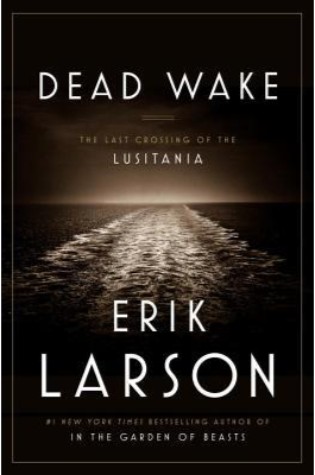
Lists It Appears On:
- Book Depository
- Goodreads
- Seattle Times
From the #1 New York Times bestselling author and master of narrative nonfiction comes the enthralling story of the sinking of the Lusitania On May 1, 1915, a luxury ocean liner as richly appointed as an English country house sailed out of New York, bound for Liverpool, carrying a record number of children and infants. The passengers were anxious. Germany had declared the seas around Britain to be a war zone, and for months, its U-boats had brought terror to the North Atlantic. But the Lusitania was one of the era’s great transatlantic “Greyhounds” and her captain, William Thomas Turner, placed tremendous faith in the gentlemanly strictures of warfare that for a century had kept civilian ships safe from attack. He knew, moreover, that his ship – the fastest then in service – could outrun any threat. Germany, however, was determined to change the rules of the game, and Walther Schwieger, the captain of Unterseeboot-20, was happy to oblige. Meanwhile, an ultra-secret British intelligence unit tracked Schwieger’s U-boat, but told no one. As U-20 and the Lusitania made their way toward Liverpool, an array of forces both grand and achingly small – hubris, a chance fog, a closely guarded secret, and more–all converged to produce one of the great disasters of history. It is a story that many of us think we know but don’t, and Erik Larson tells it thrillingly, switching between hunter and hunted while painting a larger portrait of America at the height of the Progressive Era. Full of glamour, mystery, and real-life suspense, Dead Wake brings to life a cast of evocative characters, from famed Boston bookseller Charles Lauriat to pioneering female architect Theodate Pope Riddle to President Wilson, a man lost to grief, dreading the widening war but also captivated by the prospect of new love. Gripping and important, Dead Wake captures the sheer drama and emotional power of a disaster that helped place America on the road to war.
18 .) Paris 1919: Six Months that Changed the World written by Margaret MacMillan
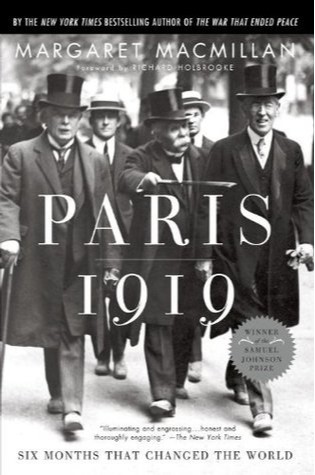
Lists It Appears On:
- Book Depository
- Explore The Archive
- Goodreads
Without question, Margaret MacMillan’s Paris 1919 is the most honest and engaging history ever written about those fateful months after World War I when the maps of Europe were redrawn. Brimming with lucid analysis, elegant character sketches, and geopolitical pathos, it is essential reading.’ Between January and July 1919, after “the war to end all wars,” men and women from around the world converged on Paris to shape the peace. Center stage, for the first time in history, was an American president, Woodrow Wilson, who with his Fourteen Points seemed to promise to so many people the fulfillment of their dreams. Stern, intransigent, impatient when it came to security concerns and wildly idealistic in his dream of a League of Nations that would resolve all future conflict peacefully, Wilson is only one of the larger-than-life characters who fill the pages of this extraordinary book. David Lloyd George, the gregarious and wily British prime minister, brought Winston Churchill and John Maynard Keynes. Lawrence of Arabia joined the Arab delegation. Ho Chi Minh, a kitchen assistant at the Ritz, submitted a petition for an independent Vietnam. For six months, Paris was effectively the center of the world as the peacemakers carved up bankrupt empires and created new countries.
17 .) The Fall of the Ottomans: The Great War in the Middle East written by Eugene Rogan
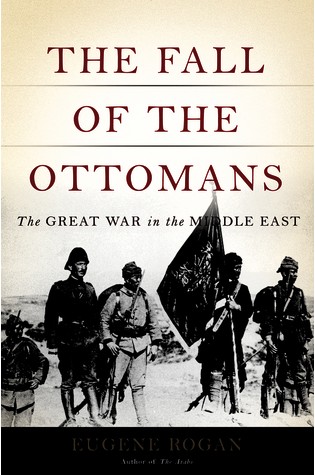
Lists It Appears On:
- Book Depository
- Irish Times
- Thought Co.
In 1914 the Ottoman Empire was depleted of men and resources after years of war against Balkan nationalist and Italian forces. But in the aftermath of the assassination in Sarajevo, the powers of Europe were sliding inexorably toward war, and not even the Middle East could escape the vast and enduring consequences of one of the most destructive conflicts in human history. The Great War spelled the end of the Ottomans, unleashing powerful forces that would forever change the face of the Middle East. In The Fall of the Ottomans, award-winning historian Eugene Rogan brings the First World War and its immediate aftermath in the Middle East to vivid life, uncovering the often ignored story of the region’s crucial role in the conflict. Bolstered by German money, arms, and military advisors, the Ottomans took on the Russian, British, and French forces, and tried to provoke Jihad against the Allies in their Muslim colonies. Unlike the static killing fields of the Western Front, the war in the Middle East was fast-moving and unpredictable, with the Turks inflicting decisive defeats on the Entente in Gallipoli, Mesopotamia, and Gaza before the tide of battle turned in the Allies’ favor. The great cities of Baghdad, Jerusalem, and, finally, Damascus fell to invading armies before the Ottomans agreed to an armistice in 1918. The postwar settlement led to the partition of Ottoman lands between the victorious powers, and laid the groundwork for the ongoing conflicts that continue to plague the modern Arab world.
16 .) The First World War written by Michael Howard

Lists It Appears On:
- Book Depository
- Five Books
- Thought Co.
By the time the First World War ended in 1918, eight million people had died in what had been perhaps the most apocalyptic episode the world had known. This Very Short Introduction provides a concise and insightful history of the Great War–from the state of Europe in 1914, to the role of the US, the collapse of Russia, and the eventual surrender of the Central Powers. Examining how and why the war was fought, as well as the historical controversies that still surround the war, Michael Howard also looks at how peace was ultimately made, and describes the potent legacy of resentment left to Germany. About the Series: Combining authority with wit, accessibility, and style, Very Short Introductions offer an introduction to some of life’s most interesting topics. Written by experts for the newcomer, they demonstrate the finest contemporary thinking about the central problems and issues in hundreds of key topics, from philosophy to Freud, quantum theory to Islam.
15 .) The War That Ended Peace: The Road To 1914 written by Margaret MacMillan
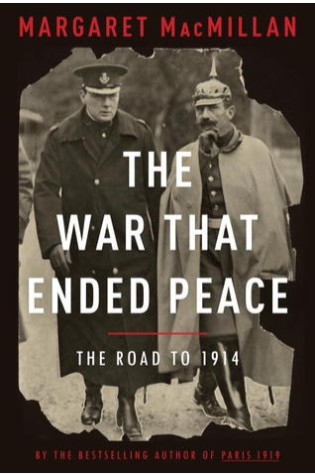
Lists It Appears On:
- About Great Books
- Book Depository
- Goodreads
The First World War followed a period of sustained peace in Europe during which people talked with confidence of prosperity, progress, and hope. But in 1914, Europe walked into a catastrophic conflict that killed millions, bled its economies dry, shook empires and societies to pieces, and fatally undermined Europe’s dominance of the world. It was a war that could have been avoided up to the last moment—so why did it happen? Beginning in the early nineteenth century and ending with the assassination of Archduke Franz Ferdinand, award-winning historian Margaret Macmillan uncovers the huge political and technological changes, national decisions, and just as important, the small moments of human muddle and weakness that led Europe from peace to disaster. This masterful exploration of how Europe chose its path towards war will change and enrich how we see this defining moment in history.
14 .) The First World War Volume 1: To Arms written by Hew Strachan
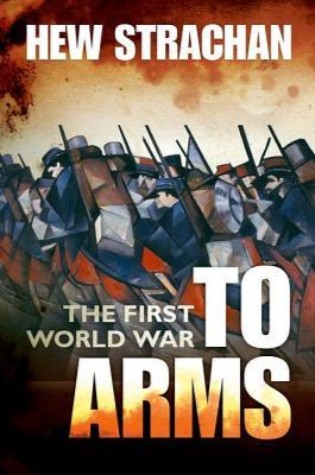
Lists It Appears On:
- About Great Books
- Five Books
- Goodreads
- Thought Co.
The First World War: To Arms v.1 Features Hew Strachan’s monumental account on the First World War. This work combines military and strategic perspectives with those of cultural, diplomatic, economic, and social history and also represents the viewpoints of Germany, England, and France. Full description
13 .) The Price of Glory: Verdun 1916 written by Alistair Horne
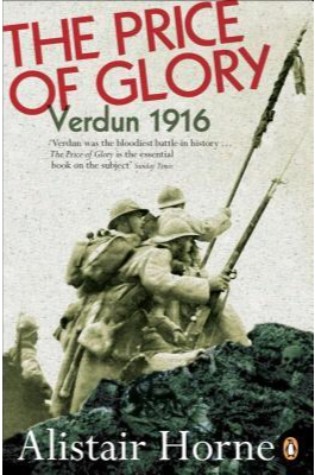
Lists It Appears On:
- About Great Books
- Goodreads
- Military
- Thought Co.
The Price of Glory: Verdun 1916 is the second book of Alistair Horne’s trilogy, which includes The Fall of Paris and To Lose a Battle and tells the story of the great crises of the rivalry between France and Germany. The battle of Verdun lasted ten months. It was a battle in which at least 700,000 men fell, along a front of fifteen miles. Its aim was less to defeat the enemy than bleed him to death and a battleground whose once fertile terrain is even now a haunted wilderness. Alistair Horne’s classic work, continuously in print for over fifty years, is a profoundly moving, sympathetic study of the battle and the men who fought there. It shows that Verdun is a key to understanding the First World War to the minds of those who waged it, the traditions that bound them and the world that gave them the opportunity. ‘Verdun was the bloodiest battle in history … The Price of Glory is the essential book on the subject’ Sunday Times ‘It has almost every merit … Horne sorts out complicating issues with the greatest clarity. He has a splendid gift for depicting individuals’ A.J.P. Taylor, Observer ‘A masterpiece’ The New York Times ‘Compellingly told … Alastair Horne uses contemporary accounts from both sides to build up a picture of heroism, mistakes, even farce’ Sunday Telegraph ‘Brilliantly written … very readable; almost like a historical novel – except that it is true’ Field Marshal Viscount Montgomery One of Britain’s greatest historians, Sir Alistair Horne, CBE, is the author of a trilogy on the rivalry between France and Germany, The Price of Glory, The Fall of Paris and To Lose a Battle, as well as a two-volume life of Harold Macmillan.
12 .) The Sleepwalkers: How Europe Went to War in 1914 written by Christopher Clark
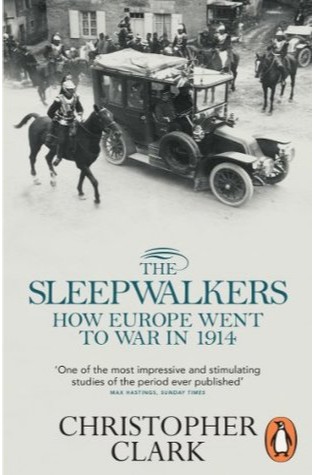
Lists It Appears On:
- About Great Books
- Book Depository
- Goodreads
- Thought Co.
The moments that it took Gavrilo Princip to step forward to the stalled car and shoot dead Franz Ferdinand and his wife were perhaps the most fateful of the modern era. An act of terrorism of staggering efficiency, it fulfilled its every aim: it would liberate Bosnia from Habsburg rule and it created a powerful new Serbia, but it also brought down four great empires, killed millions of men and destroyed a civilization. What made a seemingly prosperous and complacent Europe so vulnerable to the impact of this assassination? In The Sleepwalkers Christopher Clark retells the story of the outbreak of the First World War and its causes. Above all, it shows how the failure to understand the seriousness of the chaotic, near genocidal fighting in the Balkans would drag Europe into catastrophe.
11 .) War Horse written by Michael Morpurgo
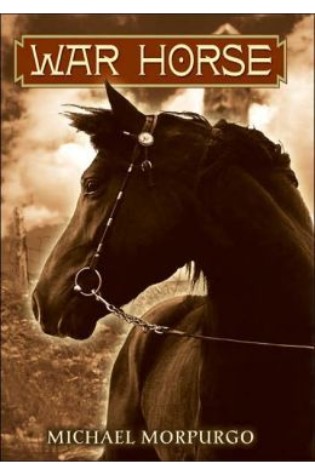
Lists It Appears On:
- Book Bub
- Goodreads
- History Hit
- Irish Times
A powerful tale of war, redemption and a hero’s journey. In 1914, Joey, a beautiful bay-red foal with a distinctive cross on his nose, is sold to the army and thrust into the midst of the war on the Western Front. With his officer, he charges toward the enemy, witnessing the horror of the battles in France. But even in the desolation of the trenches, Joey’s courage touches the soldiers around him and he is able to find warmth and hope. But his heart aches for Albert, the farmer’s son he left behind. Will he ever see his true master again?
10 .) A Farewell to Arms written by Ernest Hemingway
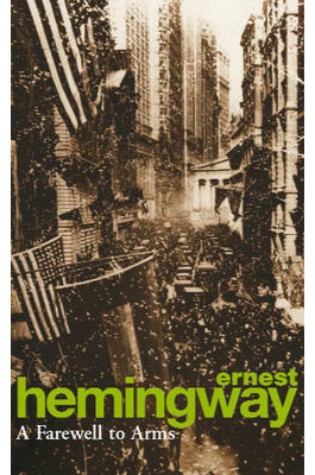
Lists It Appears On:
- Book Bub
- Goodreads
- History Hit
- Irish Times
- Military
A Farewell to Arms is the unforgettable story of an American ambulance driver on the Italian front and his passion for a beautiful English nurse. Set against the looming horrors of the battlefield – the weary, demoralized men marching in the rain during the German attack on Caporetto; the profound struggle between loyalty and desertion—this gripping, semiautobiographical work captures the harsh realities of war and the pain of lovers caught in its inexorable sweep. Ernest Hemingway famously said that he rewrote his ending to A Farewell to Arms thirty-nine times to get the words right.
9 .) Birdsong written by Sebastian Faulks
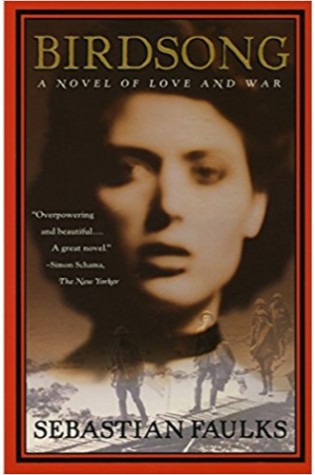
Lists It Appears On:
- Barnes And Noble
- Book Bub
- Goodreads
- History Hit
- Irish Times
Published to international critical and popular acclaim, this intensely romantic yet stunningly realistic novel spans three generations and the unimaginable gulf between the First World War and the present. As the young Englishman Stephen Wraysford passes through a tempestuous love affair with Isabelle Azaire in France and enters the dark, surreal world beneath the trenches of No Man’s Land, Sebastian Faulks creates a world of fiction that is as tragic as A Farewell to Arms and as sensuous as The English Patient. Crafted from the ruins of war and the indestructibility of love, Birdsong is a novel that will be read and marveled at for years to come.
8 .) Storm of Steel written by Ernst Jünger
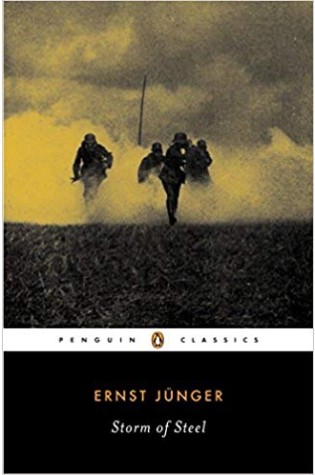
Lists It Appears On:
- About Great Books
- Book Riot
- Explore The Archive
- Goodreads
- History Hit
A memoir of astonishing power, savagery, and ashen lyricism, Storm of Steel illuminates not only the horrors but also the fascination of total war, seen through the eyes of an ordinary German soldier. Young, tough, patriotic, but also disturbingly self-aware, Jünger exulted in the Great War, which he saw not just as a great national conflict but—more importantly—as a unique personal struggle. Leading raiding parties, defending trenches against murderous British incursions, simply enduring as shells tore his comrades apart, Jünger kept testing himself, braced for the death that will mark his failure. Published shortly after the war’s end, Storm of Steel was a worldwide bestseller and can now be rediscovered through Michael Hofmann’s brilliant new translation.
7 .) The Great War and Modern Memory written by Paul Fussell
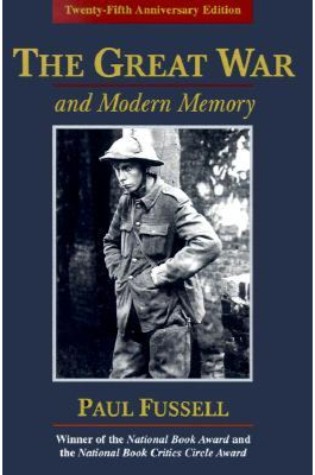
Lists It Appears On:
- About Great Books
- Book Riot
- Goodreads
- Military
- Smithsonian Mag
The year 2000 marks the 25th anniversary of one of the most original and gripping volumes ever written about the First World War. Fussell illuminates a war that changed a generation and revolutionised the way we see the world. He explores the British experience on the western Front from 1914 to 1918, focusing on the various literary means by which it has been remembered, conventionalized and mythologized. It is also about the literary dimensions of the experience itself. Fussell supplies contexts, both actual and literary, for writers who have most effectively memorialized the Great War as an historical experience with conspicuous imaginative and artistic meaning. These writers include the classic memoirists Siegfried Sassoon, Robert Graves and Edmund Blunden, and poets David Jones, Isaac Rosenberg, and Wilfred Owen. In his new introduction Fussell discusses the critical responses to his work, the authors and works that inspired his own writing, and the elements which influence our understanding and memory of war. Fussell also shares the stirring experience of his research at the Imperial War Museum’s Department of Documents. Fussell includes a new Suggested Further Reading List. Fussell’s landmark study of World War I remains as original and gripping today as ever before: a literate, literary, and illuminating account of the Great War, the one that changed a generation, ushered in the modern era, and revolutionized how we see the world.
6 .) The First World War written by John Keegan
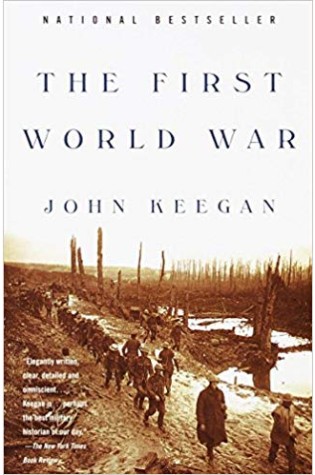
Lists It Appears On:
- About Great Books
- Explore The Archive
- Goodreads
- Military
- Smithsonian Mag
- Thought Co.
The First World War created the modern world. A conflict of unprecedented ferocity, it abruptly ended the relative peace and prosperity of the Victorian era, unleashing such demons of the twentieth century as mechanized warfare and mass death. It also helped to usher in the ideas that have shaped our times–modernism in the arts, new approaches to psychology and medicine, radical thoughts about economics and society–and in so doing shattered the faith in rationalism and liberalism that had prevailed in Europe since the Enlightenment.
5 .) Regeneration written by Pat Barker
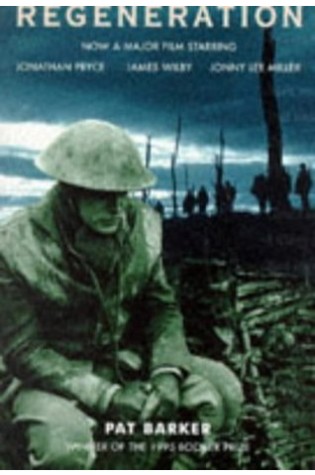
Lists It Appears On:
- Book Bub
- Explore The Archive
- Goodreads
- History Hit
- Irish Times
- Smithsonian Mag
- The Guardian
Regeneration, one in Pat Barker’s series of novels confronting the psychological effects of World War I, focuses on treatment methods during the war and the story of a decorated English officer sent to a military hospital after publicly declaring he will no longer fight. Yet the novel is much more. Written in sparse prose that is shockingly clear — the descriptions of electronic treatments are particularly harrowing — it combines real-life characters and events with fictional ones in a work that examines the insanity of war like no other. Barker also weaves in issues of class and politics in this compactly powerful book.
4 .) Testament of Youth written by Vera Brittain
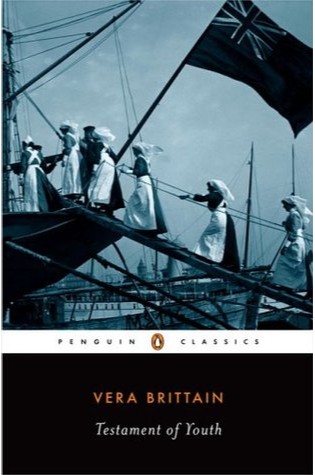
Lists It Appears On:
- About Great Books
- Book Depository
- Explore The Archive
- Goodreads
- History Hit
- Irish Times
- Smithsonian Mag
Much of what we know and feel about the First World War we owe to Vera Brittain’s elegiac yet unsparing book, which set a standard for memoirists from Martha Gellhorn to Lillian Hellman. Abandoning her studies at Oxford in 1915 to enlist as a nurse in the armed services, Brittain served in London, in Malta, and on the Western Front. By war’s end she had lost virtually everyone she loved. Testament of Youth is both a record of what she lived through and an elegy for a vanished generation. Hailed by the Times Literary Supplement as a book that helped “both form and define the mood of its time,” it speaks to any generation that has been irrevocably changed by war.
3 .) The Guns of August written by Barbara W. Tuchman
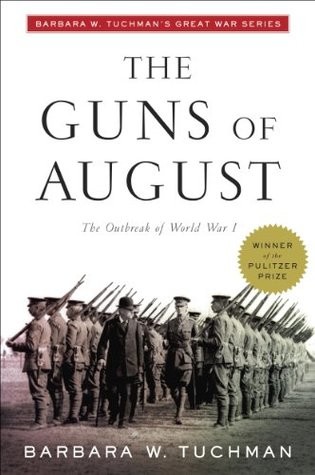
Lists It Appears On:
- About Great Books
- Barnes And Noble
- Book Depository
- Explore The Archive
- Goodreads
- Military
- Seattle Times
Historian and Pulitzer Prize-winning author Barbara Tuchman has brought to life again the people and events that led up to World War I. With attention to fascinating detail, and an intense knowledge of her subject and its characters, Ms. Tuchman reveals, for the first time, just how the war started, why, and how it could have been stopped but wasn’t.
2 .) All Quiet on the Western Front written by Erich Maria Remarque
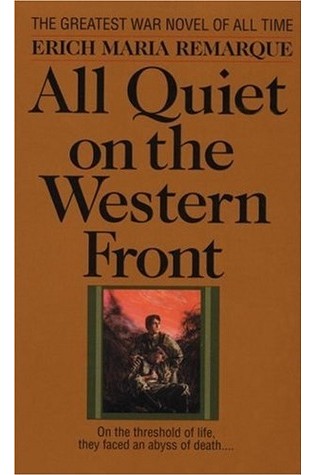
Lists It Appears On:
- Barnes And Noble
- Book Bub
- Book Riot
- Explore The Archive
- Goodreads
- History Hit
- Irish Times
- Military
This is the testament of Paul Bäumer, who enlists with his classmates in the German army of World War I. These young men become enthusiastic soldiers, but their world of duty, culture, and progress breaks into pieces under the first bombardment in the trenches. Through years of vivid horror, Paul holds fast to a single vow: to fight against the hatred that meaninglessly pits young men of the same generation but different uniforms against one another – if only he can come out of the war alive.
1 .) Goodbye to All That: An Autobiography written by Robert Graves
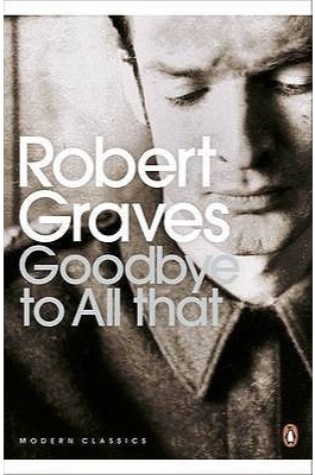
Lists It Appears On:
- About Great Books
- Barnes And Noble
- Book Riot
- Explore The Archive
- Goodreads
- History Hit
- Irish Times
- Military
An autobiographical work that describes firsthand the great tectonic shifts in English society following the First World War, Robert Graves’s Goodbye to All That is a matchless evocation of the Great War’s haunting legacy, published in Penguin Modern Classics. In 1929 Robert Graves went to live abroad permanently, vowing ‘never to make England my home again’. This is his superb account of his life up until that ‘bitter leave-taking’: from his childhood and desperately unhappy school days at Charterhouse, to his time serving as a young officer in the First World War that was to haunt him throughout his life. It also contains memorable encounters with fellow writers and poets, including Siegfried Sassoon and Thomas Hardy, and looks at his increasingly unhappy marriage to Nancy Nicholson. Goodbye to All That, with its vivid, harrowing descriptions of the Western Front, is a classic war document, and also has immense value as one of the most candid self-portraits of an artist ever written.
The 125+ Additional Best Books About Or Featuring World War One
| # | Books | Authors | Lists |
| 23 | Dreadnought | Robert K. Massie | About Great Books |
| – | – | – | Goodreads |
| 24 | Fall of Giants | Ken Follett | Book Bub |
| – | – | – | Goodreads |
| 25 | Gallipoli | L A Carlyon | Explore The Archive |
| – | – | – | Thought Co. |
| 26 | Johnny Got His Gun | Dalton Trumbo | Goodreads |
| – | – | – | History Hit |
| 27 | July 1914: Countdown to War | Sean McMeekin | Barnes And Noble |
| – | – | – | Goodreads |
| 28 | Parade’s End | Ford Madox Ford | History Hit |
| – | – | – | Irish Times |
| 29 | Ring Of Steel: Germany and Austria-Hungary in World War I | Alexander Watson | About Great Books |
| – | – | – | Thought Co. |
| 30 | Seven Pillars of Wisdom | T. E. Lawrence | About Great Books |
| – | – | – | Book Depository |
| 31 | Somme | Lyn Macdonald | Goodreads |
| – | – | – | Thought Co. |
| 32 | The Eye in the Door | Pat Barker | Goodreads |
| – | – | – | Irish Times |
| 33 | The Ghost Road | Pat Barker | Goodreads |
| – | – | – | Irish Times |
| 34 | The Good Soldier Svejk | Jaroslav Hasek | Irish Times |
| – | – | – | The Guardian |
| 35 | The Last of the Doughboys: The Forgotten Generation and Their Forgotten World War | Richard Rubin | Goodreads |
| – | – | – | Seattle Times |
| 36 | The Pity of War: Explaining World War I | Niall Ferguson | Book Depository |
| – | – | – | Goodreads |
| 37 | The Proud Tower: A Portrait of the World Before the War, 1890-1914 | Barbara W. Tuchman | Goodreads |
| – | – | – | Seattle Times |
| 38 | The Summer Before the War | Helen Simonson | Book Bub |
| – | – | – | Goodreads |
| 39 | The Trigger: Hunting the Assassin Who Brought the World to War | Tim Butcher | About Great Books |
| – | – | – | Irish Times |
| 40 | The Vanquished: Why the First World War Failed to End | Robert Gerwarth | About Great Books |
| – | – | – | Book Depository |
| 41 | The Wars | Timothy Findley | History Hit |
| – | – | – | Irish Times |
| 42 | The Zimmermann Telegram | Barbara W. Tuchman | About Great Books |
| – | – | – | Goodreads |
| 43 | To End All Wars: A Story of Loyalty and Rebellion, 1914-1918 | Adam Hochschild | About Great Books |
| – | – | – | Goodreads |
| 44 | To Hell and Back: Europe 1914-1949 | Ian Kershaw | About Great Books |
| – | – | – | Book Depository |
| 45 | To the Last Man | Jeff Shaara | Book Bub |
| – | – | – | History Hit |
| 46 | Under Fire | Henri Barbusse | History Hit |
| – | – | – | Irish Times |
| 47 | 5327 | Alexander Solzhenitsyn | Irish Times |
| 48 | 1913: In Search of the World Before the Great War | Charles Emmerson | About Great Books |
| 49 | 1914-1918: The History of the First World War | David Stevenson | Thought Co. |
| 50 | 1918: The Final Year of the Great War to Armistice | Book Depository | |
| 51 | A Long Long Way | Sebastian Barry | Irish Times |
| 52 | A Month in the Country | JL Carr | The Guardian |
| 53 | A Peace to End All Peace: The Fall of the Ottoman Empire and the Creation of the Modern Middle East | David Fromkin | About Great Books |
| 54 | A soldier’s friend | Megan Rix | The School Run |
| 55 | A Song for Will | Hilary Robinson & Martin Impey | The School Run |
| 56 | Archie’s War | Marcia Williams | The School Run |
| 57 | Battles East | G Irving Root | Thought Co. |
| 58 | Behemoth | Scott Westerfeld | Goodreads |
| 59 | Breaking Point of the French Army: The Nivelle Offensive of 1917 | David Murphy | About Great Books |
| 60 | Castles of Steel | Robert K. Massie | Goodreads |
| 61 | Churchill in the Trenches | Peter Apps | About Great Books |
| 62 | Dear Jelly | Sarah Ridley | The School Run |
| 63 | Death of a Hero | Richard Aldington | History Hit |
| 64 | Dorothea’s War | Book Depository | |
| 65 | Fall of Poppies | Collected Authors | Book Bub |
| 66 | Flo of the Somme | Hilary Robinson & Martin Impey | The School Run |
| 67 | Fly Away Peter | David Malouf | Irish Times |
| 68 | Forgotten Victory | Gary Sheffield | Thought Co. |
| 69 | Freedom Struggles: African Americans and World War I | Adriane Lentz-Smith | Book Riot |
| 70 | George, Nicholas and Wilhelm: Three Royal Cousins and the Road to World War I | Miranda Carter | Goodreads |
| 71 | Godenslaap | Erwin Mortier | Irish Times |
| 72 | Hattie Big Sky | Kirby Larson | Book Bub |
| 73 | Hell’s Foundations | Geoffrey Moorhouse | About Great Books |
| 74 | Hell’s Observer – The Epic World War 1 Journal of Private William J. Graham, American Expeditionary Forces | William J. Graham | About Great Books |
| 75 | Hero: The Life and Legend of Lawrence of Arabia | Michael Korda | About Great Books |
| 76 | How Many Miles to Babylon? | Jennifer Johnston | Irish Times |
| 77 | Imperial Germany’s Iron Regiment of the First World War | John K. Rieth | About Great Books |
| 78 | In Flanders Fields: The 1917 Campaign | Leon Wolff | Goodreads |
| 79 | Into The Silence | Book Depository | |
| 80 | Journey’s End | Book Depository | |
| 81 | July Crisis: The World’s Descent into War, Summer 1914 | T.G. Otte | About Great Books |
| 82 | Learning to Fight | Aimee Fox | Five Books |
| 83 | Les Ames Grises | Philippe Claudel | Irish Times |
| 84 | Les Champs d’Honneur | Jean Rouaud | Irish Times |
| 85 | Letters from Skye | Jessica Brockmole | Book Bub |
| 86 | Leviathan | Scott Westerfeld | Goodreads |
| 87 | Life After Life | Kate Atkinson | Goodreads |
| 88 | Line of Fire: Diary of an Unknown Soldier | The School Run | |
| 89 | Lingo of No Man’s Land: A World War I Slang Dictionary | Lorenzo N. Smith | Barnes And Noble |
| 90 | Maisie Dobbs | Jacqueline Winspear | Goodreads |
| 91 | March 1917: On the Brink of War and Revolution | Will Englund | About Great Books |
| 92 | Mata Hari’s Last Dance | Michelle Moran | Book Bub |
| 93 | Mein Kampf(German Language Edition) | Book Depository | |
| 94 | Memoirs of an Infantry Man | Siegfried Sassoon | Irish Times |
| 95 | Monash’s Masterpiece | Book Depository | |
| 96 | More Twentieth Century Articles | History Hit | |
| 97 | Mrs Dalloway | Virginia Woolf | The Guardian |
| 98 | My Dear I Wanted to Tell You | Louisa Young | Book Bub |
| 99 | Once An Eagle | Military | |
| 100 | One Morning in Sarajevo: 28 June 1914 | David James Smith | Irish Times |
| 101 | Only remembered Edited | Michael Morpurgo | The School Run |
| 102 | Orsinian Tales | Ursula K Le Guin | The Guardian |
| 103 | Overseas | Beatriz Williams | Book Bub |
| 104 | Pale Horse, Pale Rider | Katherine Anne Porter | The Guardian |
| 105 | Pandora’S Box | Book Depository | |
| 106 | Passchendaele | Lyn MacDonald | Thought Co. |
| 107 | Peacemakers Six Months that Changed The World | Book Depository | |
| 108 | Poilu: The World War I Notebooks of Corporal Louis Barthas, Barrelmaker 1914–1918 | Louis Barthas | Barnes And Noble |
| 109 | Private Peaceful | Michael Morpurgo | Irish Times |
| 110 | Red Cavalry | Isaac Babel | The Guardian |
| 111 | Remembrance | Theresa Breslin | The School Run |
| 112 | Return of the Soldier | Rebecca West | The Guardian |
| 113 | Rites of Spring: the Great War and the Birth of the Modern Age | Modris Eksteins | Five Books |
| 114 | Schlump – Tales and Adventures from the Life of the Anonymous Soldier Emil Schulz, known as ‘Schlump’ Narrated | Himself | Irish Times |
| 115 | Sebastian | Christoph Fischer | Goodreads |
| 116 | See inside the First World War | The School Run | |
| 117 | Silent Night: The Remarkable Christmas Truce of 1914 | Stanley Weintraub | Goodreads |
| 118 | Somewhere in France | Jennifer Robson | Book Bub |
| 119 | Somme Mud | Book Depository | |
| 120 | Stay where you are and then leave | John Boyne | The School Run |
| 121 | Stories of WWI Edited | Tony Bradman | The School Run |
| 122 | The Absolutist | John Boyne | Goodreads |
| 123 | The Alice Network | Kate Quinn | Goodreads |
| 124 | The amazing tale of Ali Pasha | Michael Foreman | The School Run |
| 125 | The Assassination of the Archduke: Sarajevo 1914 and the Romance that Changed the World | Greg King and Sue Woolmans | About Great Books |
| 126 | The Beauty and the Sorrow: An Intimate History of the First World War | Peter Englund | Goodreads |
| 127 | The Burning of the World – a Memoir of 1914 | Béla Zombory-Moldovan | Irish Times |
| 128 | The Christmas Truce | Hilary Robinson & Martin Impey | The School Run |
| 129 | The Collected Poems of Wilfred Owen | Wilfred Owen | Barnes And Noble |
| 130 | The complete memoirs of George Sherston | Siegfried Sassoon | History Hit |
| 131 | The Deluge | Book Depository | |
| 132 | The Fall of the Dynasties: The Collapse of the Old Order: 1905-1922 | Edmond Taylor | About Great Books |
| 133 | The First World War: A Complete History | Martin Gilbert | Goodreads |
| 134 | The First World War: A Very Short Introduction | Book Depository | |
| 135 | The First World War: Germany and Austria-Hungary | H. H. Herwig | Thought Co. |
| 136 | The Foreshadowing | Marcus Sedgwick | The School Run |
| 137 | The Girl You Left Behind | Jojo Moyes | Goodreads |
| 138 | The Great Push | Patrick MacGill | Irish Times |
| 139 | The Hazy Red Hell – Fighting Experiences on the Western Front, 1914 – 1918 | Thought Co. | |
| 140 | The Last Great War | Adrian Gregory | Five Books |
| 141 | The Longman Companion to the First World War: Europe 1914 – 1918 | Nicolson | Thought Co. |
| 142 | The Magic Mountain | Thomas Mann | The Guardian |
| 143 | The Marne, 1914: The Opening of World War I and the Battle That Changed the World | Holger H. Herwig | Goodreads |
| 144 | The Penguin Book of First World War Poetry | Thought Co. | |
| 145 | The Radetzky March | Joseph Roth | The Guardian |
| 146 | The Sandcastle Girls | Chris Bohjalian | Goodreads |
| 147 | The Secret Language of Stones | M. J. Rose | Book Bub |
| 148 | The Shortest History of Germany | Book Depository | |
| 149 | The Somme: The Darkest Hour on the Western Front | Peter Hart | Goodreads |
| 150 | The Story of World War One | Richard Brassey | The School Run |
| 151 | The Three Emperors | Book Depository | |
| 152 | The World Crisis, 1911-1918 | Military | |
| 153 | The World Crisis, Vol. 1 | Winston S. Churchill | About Great Books |
| 154 | The World Remade: America in World War I | G.J. Meyer | About Great Books |
| 155 | Three Day Road | Joseph Boyden | Book Bub |
| 156 | Torchbearers of Democracy: African American Soldiers in the World War I Era | Chad L. Williams | Book Riot |
| 157 | Toward the Flame | Hervey Allen | About Great Books |
| 158 | Trench Talk/Trench Life | Seattle Times | |
| 159 | Victory at Villers-Bretonneux | Book Depository | |
| 160 | Washington Square | Book Depository | |
| 161 | Where the poppies now grow | Hilary Robinson & Martin Impey | The School Run |
| 162 | With the Help of God and a Few Marines: The Battles of Chateau Thierry and Belleau Wood | Albertus W. Catlin | About Great Books |
| 163 | With Their Bare Hands: General Pershing, the 79th Division, and the battle for Montfaucon | Gene Fax | About Great Books |
| 164 | World War I in 100 Objects | Seattle Times | |
| 165 | World War I: A Short History | Michael J. Lyons | About Great Books |
| 166 | World War I: The Definitive Visual History | R.G. Grant | About Great Books |
16 Best Fiction & Nonfiction WW1 Book Sources/Lists
| Source | Article |
| About Great Books | 40 Great Books About World War I |
| Barnes And Noble | Remembering World War I with 10 Astounding Books |
| Book Bub | 17 Historical Fiction Books About World War I |
| Book Depository | World War 1 Non-Fiction Books |
| Book Riot | Some of the Best Books About World War I |
| Explore The Archive | 9 Best World War I Books |
| Five Books | The Best Books on World War I |
| Goodreads | Popular World War 1 Books |
| History Hit | 15 of the Best Novels and Memoirs About World War One |
| Irish Times | The great books that define the Great War |
| Military | World War I: Top 10 Books |
| Seattle Times | 5 books you should read to learn more about World War I |
| Smithsonian Mag | Five Books on World War I |
| The Guardian | From Roth to Le Guin: top 10 novels about the first world war |
| The School Run | WWI books for children |
| Thought Co. | The Best Books on World War I in 2019 |
